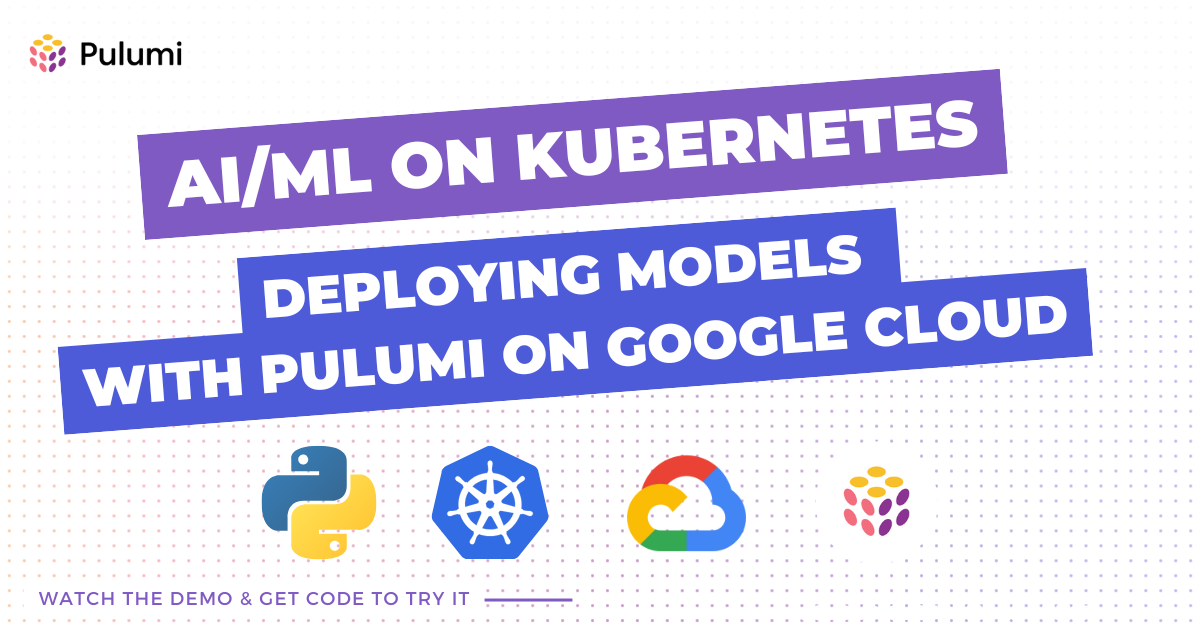
Kubernetes has transformed cloud infrastructure by enabling scalable, containerized applications. While it initially gained traction for managing web applications and microservices, its capabilities now extend to AI/ML workloads, making it the go-to platform for data scientists and machine learning engineers.
Running AI/ML workloads on Kubernetes presents unique challenges, including:
- Specialized hardware requirements (e.g., GPUs, TPUs)
- Scalability for model training and inference
- Complex data pipelines that integrate various cloud services
- Infrastructure automation for seamless deployment
Google Cloud Kubernetes (GKE) provides a robust foundation for AI/ML workloads, but managing infrastructure manually can be cumbersome. This is where Pulumi comes in—enabling Infrastructure as Code (IaC) to automate and simplify AI/ML infrastructure on Kubernetes.
Read more →









